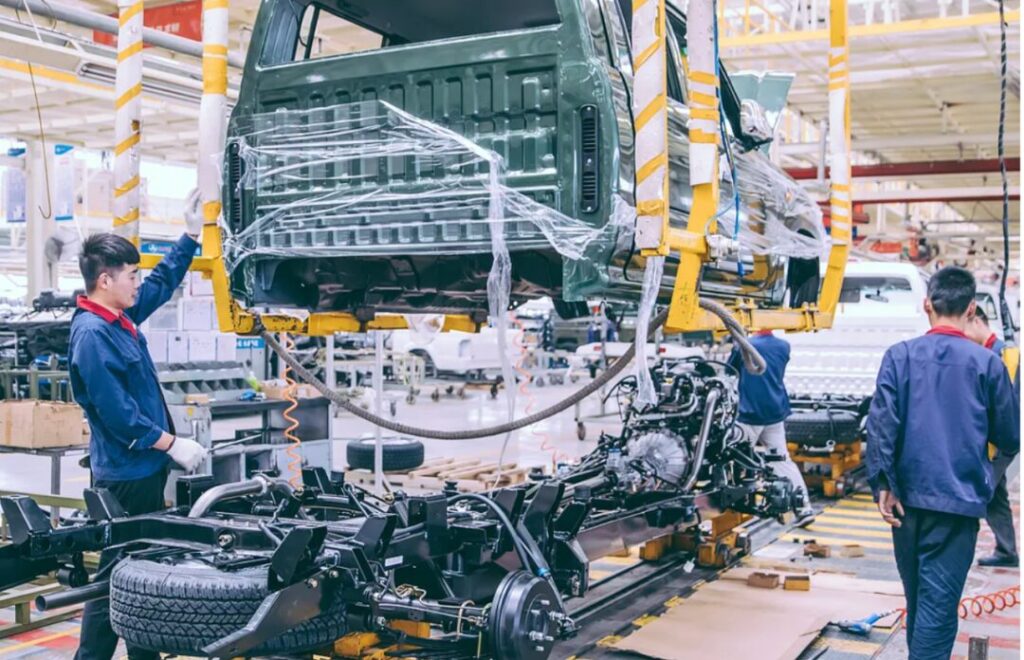China’s Auto Empire Has an Achilles’ Heel: Why Beijing is Cracking Down on Late Supplier Payments

China’s automotive industry appears to be golden. Dazzling new EVs, record-breaking sales, and global expansion paint a picture of an unstoppable empire. But behind this glittering facade, a critical illness has been festering: the empire’s lifeblood—cash flow to its smaller suppliers—is being choked off.
This isn’t just a minor issue; it’s the Achilles’ heel of a burgeoning superpower. And now, the Chinese government has finally unsheathed its sword.
What is China’s New “60-Day Payment” Enforcement?
On July 9th, China’s Ministry of Industry and Information Technology (MIIT) launched an official “Problem Reporting Window.” In simple terms, this is a declaration from Beijing: “If a major automaker doesn’t pay you on time, report them to us, and we will intervene.”
This new enforcement platform isn’t just a suggestion box. It’s a targeted weapon aimed at shutting down the clever loopholes automakers have used for years to delay payments. The policy directly tackles:
- Unreasonable delays in quality inspection to postpone the payment clock.
- Forcing suppliers to accept non-cash supply chain finance tools like commercial bills.
- Contract clauses that blatantly exceed the 60-day limit set by law.
Why Promises Weren’t Enough: The Story of 182 Days
This government action was necessary because the “voluntary” 60-day payment pledges made in June by 17 automakers, including BYD and Geely, were merely a band-aid on a deep wound. The real, ugly story lies in a single number: 182.
According to data from the Wind Platform, that was the average number of accounts payable turnover days for listed Chinese automakers in 2024. In the midst of a brutal “price war,” large companies were protecting their own razor-thin profit margins by extending payment terms, effectively forcing their SME suppliers to provide them with nearly six months of interest-free loans. This wasn’t a sustainable business practice; it was a slow-motion strangulation of the industry’s most vulnerable players.
The Real-World Impact on BYD, Geely, and the Supply Chain
The MIIT’s crackdown is a direct intervention into the procurement practices of industry titans. For companies like BYD and Geely, it means increased scrutiny and real pressure to overhaul their financial management.
For the thousands of SMEs that form the foundation of China’s manufacturing prowess, this is a potential lifeline. Improved working capital means they can invest in R&D, maintain quality, and ensure stable production. This, in turn, strengthens the resilience of the entire supply chain, which had been teetering on the edge of a potential crisis.
Expert Analysis: A Necessary Surgery for a Sustainable Future?
This new industrial policy from Beijing is more than just a move to protect small businesses; it’s a necessary surgery to save the entire ecosystem from itself. It signals a crucial shift in focus from celebrating short-term sales growth to ensuring long-term health and stability.
The Chinese government has recognized that an empire built on a foundation of shaky IOUs and delayed payments is ultimately a house of cards. The era of easy credit at the expense of suppliers appears to be over.
While this will undoubtedly add financial pressure on automakers in the short term, it’s an essential step. The real test for China’s auto industry—building a truly resilient and globally respected powerhouse—is just beginning.
My AI Jazz Project:
One Comment